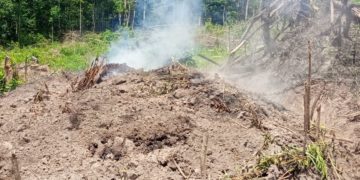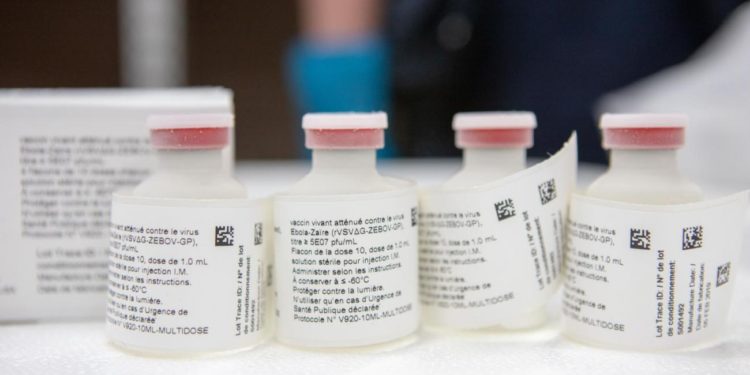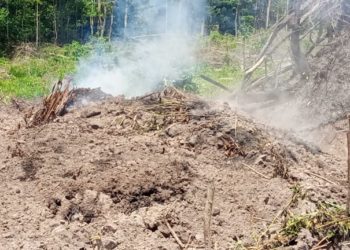By Kemo Cham
After nearly a week of delay, Sierra Leone is kick-starting a nationwide mass vaccination campaign against Measles and Rubella, two viral diseases ravaging children in the country, despite the availability the preventable vaccine.
The campaign which will run from Wednesday July 3rd to 9th will involve static teams of health workers stationed at designated positions across the country to administer the lifesaving commodity on 1.3 million eligible children from nine to 59 months.
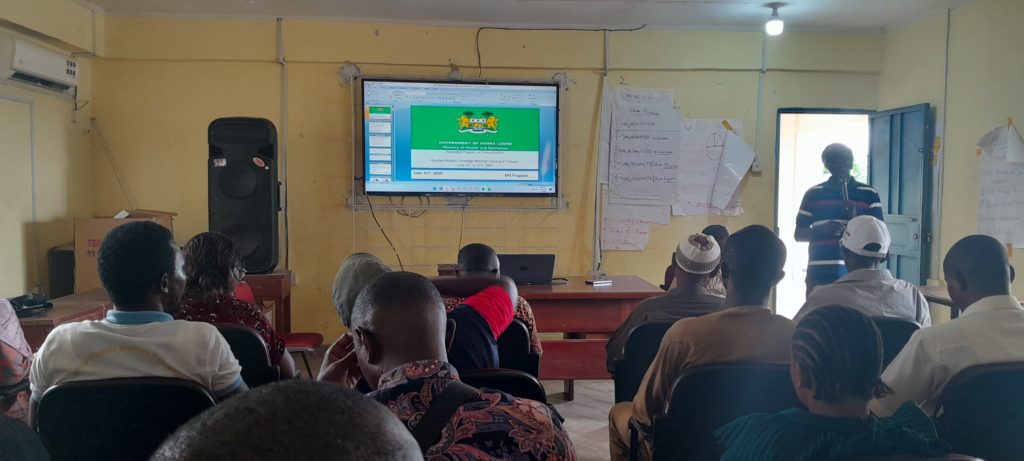
Measles and Rubella are both viral diseases that mostly affect children.
Measles infects the respiratory tract and then spreads throughout the body. Its symptoms include high fever, cough, runny nose and a rash all over the body. Rubella, on the other hand, has similar characteristics with Measles, except for few differences in their signs and symptoms.
Rubella is transmitted by airborne droplets that occurs most often in children and young adults.
Both diseases inflict debilitating effect on their victims, including eye problems and deafness. They remain to be one of the leading causes of preventable deaths in children under 5 years. But officials say that even adults over 20 years of age are also at higher risk of severe or fatal measles infection.
Rubella can notably lead to maternal rubella infection in early pregnancy, which can severely affect the foetus and can result in miscarriage, foetal death or a combination of disabling conditions collectively known as Congenital Rubella Syndrome (CRS).
According to the World Health Organization (WHO), Rubella is the leading vaccine-preventable cause of birth defects, accounting for an estimated 100 000 infants born with CRS each year worldwide.
Yet both viruses are best prevented through vaccination, according to WHO.
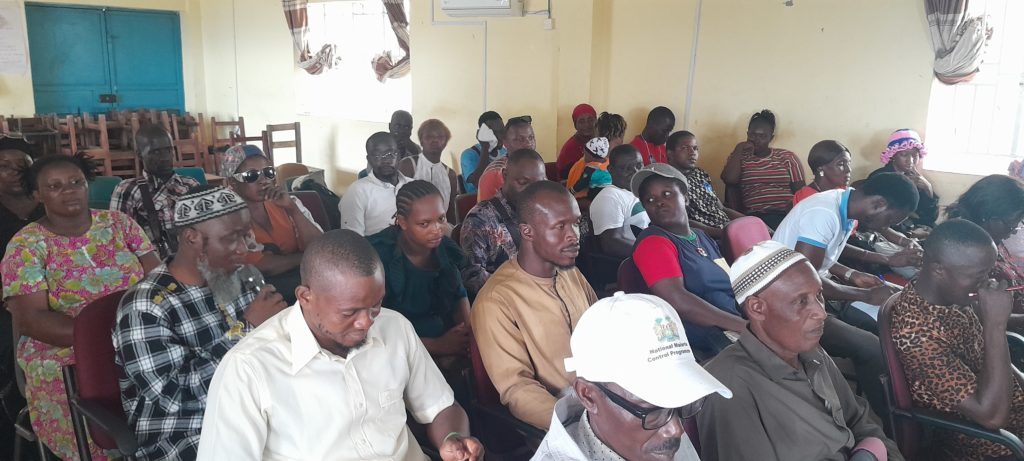
There is no specific treatment for the two illnesses. Victims are treated for symptoms like fever and cough. Sometimes, when the virus disappears, it will have left lifelong marks like loss if eyesight and deafness.
The combined Measles and Rubella vaccine was introduced into Sierra Leone’s routine immunization programme in 2019. It is administered twice on eligible children, starting at nine months and then at 15 months. Data from the Health Ministry shows that many children default for the second dose, says Thomas Harding, Social Mobilization Lead at the District Health Management Team (DHMT) Western Area Urban.
“A lot of babies miss on the second does,” Harding told a group of community health workers and social mobilizers on the eve of commencement of the campaign on July 1st.
The campaign was initially planned for 28 June to 4 July. But it was postponed due to logistical reasons, mainly mobilization of the health workers to administer the shots, said Harding.
“This is different from Polio vaccination because trained health workers are needed to administer the vaccine through injection,” said Harding, noting that mobilising these health workers contributed to the delay in commencement of the week-long campaign.
Unlike campaigns involving polio, this one will also not involve house-to-house activity, he added. Instead, the health workers will be static at designated centers, including health centers. Each team comprises three personnel, two vaccinators and a social mobilizer.
Eligible children will also be administered with Vitamin A and Abendazole as deworming tablets during the course of the exercise.
The Health Ministry says it is aiming for a 95 percent coverage of the eligible children.
“We aim to reach 95% of all eligible children aged 9 to 59 months, as well as at least 95% of zero-dose children in communities,” Dr. Desmond Maada Kangbai, head of the Expanded Programme on Immunization at the Ministry of Health, was quoted in a statement.
“Unvaccinated children are at the highest risk of measles, its complications, and death,” he warned in the statement released through the Health Education Division in the Ministry.
According to the Ministry’s data, the northern-western Karene District, one of the most deprived parts of the country, recorded the largest number of cases (143) in 2024, with a total of 302 cases reported across 10 districts. This compares to 1,111 cases recorded in the first 23 weeks of 2023, the data shows.
At the global level, WHO data shows that measles causes approximately 134,200 deaths annually, with about 367 deaths per day or 15 deaths per hour.
Global vaccination efforts started from the early 2000s has led to a 79% drop in measles deaths worldwide, up to 2015, according to the UN health agency.
A joint publication by WHO and the United States Centers for Disease Control and Prevention (CDC) published in December 2023 warned of an alarming rise in measles cases globally. It indicated an 18 percent increase in cases in 2022 to over 9 million, with deaths going up by 43% (136,200). Some 37 countries experienced outbreaks in that year, according to the data. That trend was partly attributed to the Covid-19 pandemic, underscoring the need for accelerated efforts to support recovery from the COVID-19 pandemic and strengthening of health systems, especially in the lower-income countries most impacted the deadly disease.
Experts say that the highly contagious nature of measles and Rubella requires consistently vaccinating at least 95% of eligible children to prevent outbreaks.
But in a country like Sierra Leone, there are concerns about hindrances, including apathy fueled by fake news.
There is particularly huge concerns over non-cooperation among school authorities, especially private schools in the Western Area Urban.
The regional health authorities say school authorities, particularly those run by foreign owners, often request for documentary approval which they almost always never respond to.
“The problems we have with private schools (is such that) if we don’t have other measures, it won’t work, said Harding, noting that it will require engagement with parents for a way out of the quagmire.

